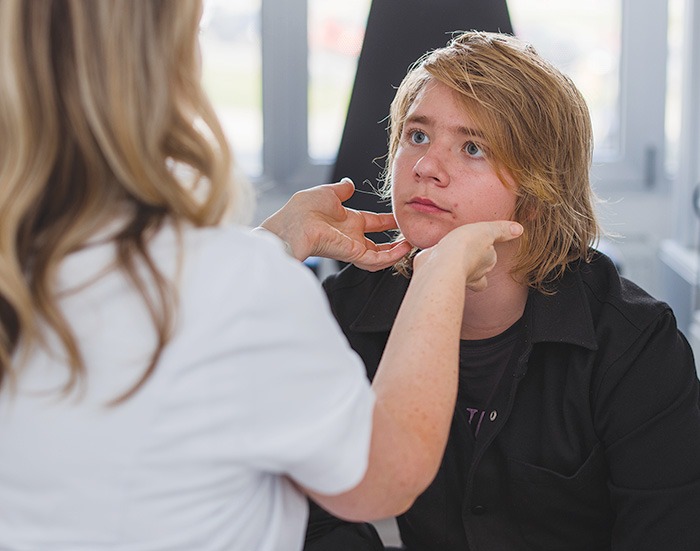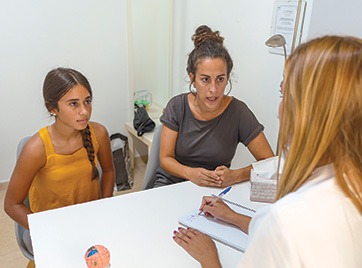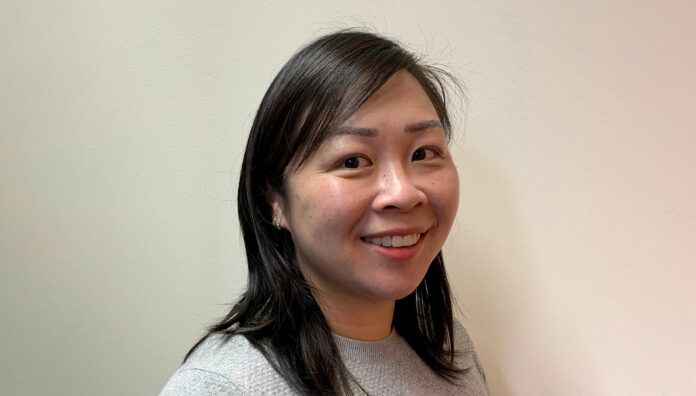A practical guide to upskilling, developing a role and finding the right general practice to match your experience.
Before embarking on a career in general practice, it helps to have some clinical and all-round experience under your belt, said Mayli Foong MPS, a GP pharmacist and State Manager of PSA’s West Australian Branch.
‘Just like pharmacists have lots of different and varied skills, GPs also have a wide range of experience, expertise and specialisations,’ Ms Foong told Australian Pharmacist.
GP clinics offer services from paediatrics to geriatrics, and they might provide care for patients with Alzheimer’s disease, palliative patients with cancer, or those with chronic disease – so having encountered these patient types in a clinical setting can go a long way.
Confidence in your skills as a pharmacist is also key. When you first meet with a clinic’s practice manager, they will ask you about your skill set, and you need to be able to sell yourself.
Confidence in
your skills as a pharmacist is key.
Ms Foong, for example, details her previous GP pharmacist experience, along with her clinical experience as a hospital pharmacist, where she was exposed to intensive care, rehabilitation, medical, surgical and mental health patients.
Other essential skills include having good audit skills and an understanding of medicine safety and the quality use of medicine.
‘Also, if there are any changes or updates to [guidelines around] asthma, chronic obstructive pulmonary disease or diabetes, it’s important to know all that when you’re talking to the GP so you know the target areas for your audit,’ Ms Foong said.
Pharmacists working in a GP setting also need to be engaging and show that they are approachable to allied health practitioners, such as dieticians, physiotherapists, nurses and doctors, and patients.
‘Just like when you meet someone for the first time and you have up to 10 seconds to make a connection with them, you need to be able to use icebreakers that can engage people quickly,’ Ms Foong said.
‘Often patients are unwell and not feeling their best, or even if they’re in for a routine health assessment, they might have been sitting in the GP practice for an hour.’
Securing a role
Pharmacists should first complete PSA’s GP Fundamentals Training Course, which provides helpful background information on GP practice and the types of services on offer.
‘Often patients are unwell and not feeling their best, or they might have been sitting in the GP practice for an hour.’
Next, it’s important to familiarise yourself with the Pharmaceutical Benefits Scheme (PBS) website, to ensure you understand the intricacies of prescribing.
‘These are the questions [GPs] will ask you, because they’ll try and prescribe something and it will be rejected, or they might get an audit from Medicare because [they missed] some small fine print on the PBS website, where it says you can’t prescribe this medicine with that medicine for that particular condition,’ she said.
GP pharmacists also need to understand how practices utilise funding via the Medicare Benefits Schedule (MBS).
A lot of patient discussions take place informally, for example, if the nurse has a chat with the GP after seeing the patient, this cannot be billed through the MBS.
But if the nurse, GP pharmacist and GP discuss the patient’s case formally via a documented case conference, then it can be considered an MBS billable item.
Finding the right practice
To get an overview of the GP clinics in your area, PSA’s Needs Assessment tool is a good resource to help you match a practice with your skill set.
It will help you gather information on how many patients and staff a practice has, what their focus is, if they service any nursing homes, and if they are interested in education or patient consultations.
Touching base with your local Primary Health Network (PHN) could also be useful, Ms Foong said.
‘PHNs have liaisons who go out to various GP practices, so they could point you in the direction of the practices they think might be suitable,’ she added.
Lastly, Ms Foong said you can learn a lot about a practice by just sitting in the waiting room.
‘I was in one GP [practice] where I went to get a blood test, and I listened to the type of people who were coming in,’ she said.
‘I could tell that the practice had a lot of elderly people with complex medical conditions.’
Carving out a role
To start, the GP will typically ask you some questions, such as what worked well in a previous practice you worked in – which is where experience with audits that focus on medicine optimisation can come in handy.
‘One thing I did [previously] that was quite simple was an audit on patients with osteoporosis who were on any medicine [for their condition], with a focus on denosumab,’ Ms Foong told AP.
‘I looked at [whether] they’d had their calcium and vitamin D levels checked before and after their denosumab dose.’
This particular audit often works well to engage practice staff and get conversations going, Ms Foong said, as a number of people may be on this medicine.
After meeting with the practice manager and the GP, you should ask for a formal introduction to the rest of the staff to discuss your previous experience and ask other doctors what they will find helpful.
‘In terms of funding a GP pharmacist’s role, we’re saving [the doctors] time so they can see more patients.’
For example, if you did an audit on diabetes patients to optimise their therapy that worked well in another practice, you could ask the staff if it would receive the same level of engagement in their clinic.
‘They might say to you, “We don’t have any diabetes patients, we have heart failure patients,” so you wouldn’t do the diabetes audit if it doesn’t suit their practice,’ Ms Foong said.
Educating doctors and nurses about the different medicines available for particular conditions prevalent in their practice can also be helpful.
‘Pharmacists can give an overview of these medicines rather than a drug rep coming to talk to them, as we’re able to give them an unbiased comparison of medicines on the market,’ she said.
Another important aspect of a GP pharmacist’s role is breaking down any perceived barriers between community pharmacists and the practice.
‘One of the first things I do is ask the names of pharmacies they work closely with,’ Ms Foong said.
‘Then I’ll introduce myself, usually in person, to the community pharmacy team, so they know you’re a point of contact at the practice.’
That way, if a community pharmacist is chasing an old prescription or wants to clarify changes to a blister pack, they know they can call you.
Essentially, Ms Foong said, GP pharmacists can prove their worth by focusing on quality improvement in the practice and saving the doctors time.
‘Sometimes they will want us to check a script before they send it off, or it might be that there are changes in legislation that we can advise on, so that they don’t have to go back and redo their work,’ she said.
As medicines are a pharmacist’s specialty, a GP pharmacist can jump in and sort out any issues with community pharmacists directly.
‘This [might save] 45 minutes of the GP’s time, which is often going to be [in] their out-of-clinic hours,’ Ms Foong said.
‘So in terms of funding a GP pharmacist’s role, we’re saving [the doctors] time so they can see more patients.’



 Pharmacists have always prescribed, but they have the potential to prescribe much more
Pharmacists have always prescribed, but they have the potential to prescribe much more



 Sponsorship information
Sponsorship information


 Talking to patients who have questions
Talking to patients who have questions





